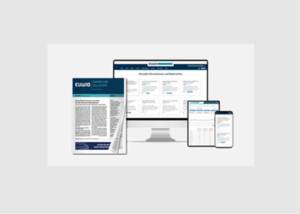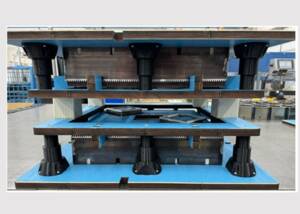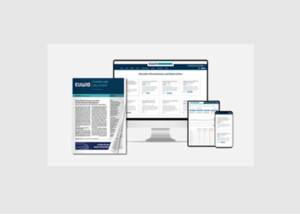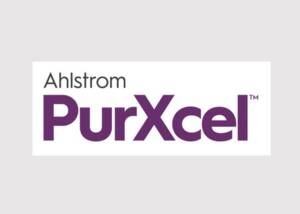Secretary of State Michael Kellner visits Progroup's site in Eisenhüttenstadt
News General news
There were plenty of topics with relevance to the future for Michael Kellner, Parliamentary Secretary of State at the Federal Ministry for Economic Affairs and Climate Action, to consider when he visited Progroup’s site in Eisenhüttenstadt. Among others, he spoke to Progroup director Beate Flamm about the potential for decarbonisation.
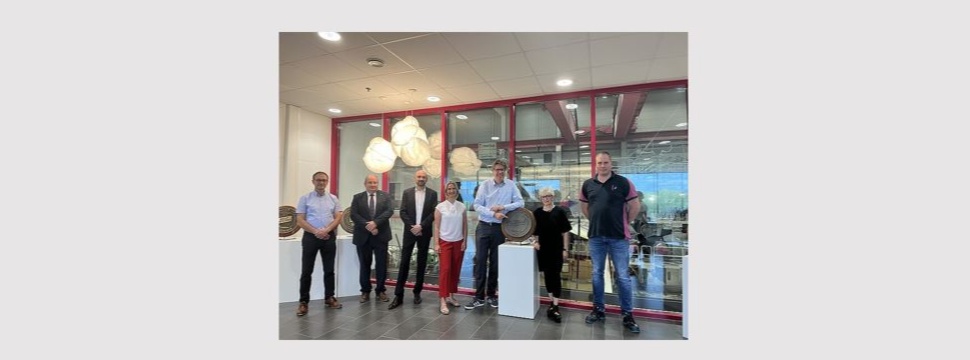
During his visit to the PM2 paper factory and the PPO1 waste-to-energy plant, Secretary of State Kellner, who is also the Federal Government Commissioner for Small and Medium-Sized Enterprises, was very keen to find out more about Progroup’s commitment to becoming even more sustainable. Following new approaches to achieve further decarbonisation is a vital element of Progroup's strategy.
Research project for storing heat
“Progroup is a highly innovative company. I was particularly impressed by the research idea of storing heat in salt crystals. We at the Federal Ministry for Economic Affairs and Climate Action promote this and it will also benefit Eisenhüttenstadt as a site for the future,” explained Michael Kellner. The research project under discussion is called MoWiE (Modular Heat Storage Systems for Industrial Use), which Progroup is involved in together with SIK Peitz GmbH, the German Aerospace Center and Knauf Interfer Aluminium GmbH & Co KG. The project is supported on behalf of the Federal Ministry for Economic Affairs and Climate Action by project sponsor Jülich. The objective of MoWiE is to increase energy savings and flexibility in industrial processes by using thermal energy stores. In simple terms, the project aims to transfer excess steam or heat to a storage module. This contains nitrate salt that is liquefied when the steam is supplied, thus storing the heat. The heat can then be released at a later date, as required. This turns the salt back into a solid and the whole process can be repeated. This innovative system is set to be implemented at Progroup's site in Eisenhüttenstadt.
Highly sustainable: “Next-Fibre” products
Progroup manufactures containerboard at the Eisenhüttenstadt site with its state-of-the-art facilities – around 650,000 tonnes a year. The containerboard is made from highly sustainable papers that Progroup has developed and markets as “Next-Fibre” products. They are produced exclusively using recovered paper without any fresh fibre being added, are much lighter compared to customary papers in the market and yet are extremely high-performing – a material advantage that is evident not just during transport and saves CO2. Once the products have been used, they can be fully recycled as recovered paper.
Fewer fossil fuels consumed
The energy required for papermaking is supplied from the waste-to-energy power plant next door. It utilises what are known as rejects – waste materials from paper production and substitute fuels from industry, commerce and municipalities – and then supplies the PM2 paper machine with all the hot steam it needs. The power plant also produces electricity. The amount of electricity produced is equivalent to roughly 50 per cent of the power that PM2 requires. Progroup is thus able to significantly reduce its use of fossil fuels.
Progroup has operated its PM2 paper factory in Eisenhüttenstadt since 2010. The power plant was commissioned one year later. Both projects have resulted in investments of 750 million euros. Progroup has also created around 200 state-of-the-art jobs at the site.

